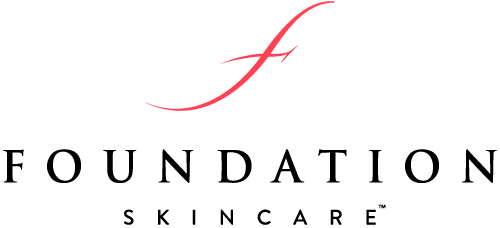If you’re noticing areas of discoloration (darkened spots or patches on the skin), it is possible you may be suffering from a skin pigmentation disorder.
While discoloration disorders in the skin are not a threat to your overall health, many individuals seek to correct their uneven skin tone. Fortunately, at Foundation Skincare, we have developed a unique supplement to support the treatment of pigmentary disorders in dermatological patients to help maintain the results of treatments/lasers that are received, and to help minimize additional hyperpigmentation from occurring.
What is Pigmentation?
Pigmentation is simply the coloring of the skin. It is regulated by your body’s natural production of melanin, the pigment that gives color to your skin, hair, and eyes.
Symptoms of Hyperpigmentation in the Skin
Hyperpigmentation is a condition characterized by darkened areas on the skin, with patches varying in size and appearing on various parts of the body.
What are some early signs of hyperpigmentation?
Patches usually appear first on the face, particularly the cheeks, bridge of the nose, and forehead, since these areas typically get more sun exposure. However, any discolored patch of skin (regardless of where it is located) could signal the beginning of hyperpigmentation.
Main Causes
Melanin is produced by specialized skin cells called melanocytes. When these skin cells become damaged, they may produce an excess or an inadequate amount of melanin. This affects skin pigmentation by altering the color of the skin in those areas.
Pigmentary disorders such as hyperpigmentation are caused by an increase in melanin, which may be triggered by a number of factors. This includes sun exposure, hormonal fluctuations (such as during pregnancy), skin injuries, allergies, infections, medications, inflammation, and the aging process.
Hyperpigmentation causes patches of skin to become darker than the skin of the surrounding areas, and can affect people of all skin types. It is particularly common among people with darker skin, since they produce a greater amount of melanin. In some skin types, acne, bruises, burns, rashes, scars, or other skin injuries may also trigger skin cells to increase melanin production, producing dark spots or patches.
What are some types of pigmentation disorders?
- Age spots, also known as liver spots
- Melasma
- Post-inflammatory hyperpigmentation
- Hyperpigmentation caused by certain medications and health conditions
- Vitiligo, or patches of skin where there is a lack of melanin
Pigmentation Defense by Foundation Skincare
The Foundation Skincare Pigmentation Defense effectively treats hyperpigmentation by delivering essential nutrients to the skin. This nutritional supplement provides crucial support to skin cells and balances natural melanin production.
For optimal results, we recommend that you use Pigmentation Defense and daily sunscreen as part of a comprehensive medical treatment overseen by a qualified, licensed dermatologist.
How It Works
Foundation Skincare was founded on years of medical research into the use of herbal products to support recovery and treatment of patients suffering from vitiligo and melasma.
Active ingredients and how they work:
Polypodium Leucotomos Extract: This fern has significant antioxidant properties, and effectively reduces the damaging effects of UV light on human DNA and cells. This extract has been shown to improve the response of both melasma and vitiligo patients to external treatments, such as UV light therapy.
Gingko Biloba: Extracts from the leaf of the ancient ginkgo biloba tree (which has been used in Traditional Chinese Medicine for centuries) contain potent natural antioxidants. Gingko biloba treats pigmentation disorders (including vitiligo and melasma) by mitigating oxidative stress to skin cells. Studies have shown improvement among vitiligo patients while taking doses found in our formula (Clin Exp Dermatol. 2003 May;28(3):285-7.)
Alpha Lipoic Acid (ALA): A naturally occurring antioxidant, ALA is a key cofactor in several enzymatic processes within our bodies, isolating free radicals during these processes
Ascorbic Acid: Ascorbic acid (a form of vitamin C) is critical to immune function and healthy production of collagen. It’s an essential factor in tissue repair, as well as a powerful antioxidant.
Vitamin E: One of nature’s most potent antioxidants, vitamin E supplementation has been found to help restore pigmentation when used alongside UV light therapy.
Enhancing UV Light Therapy
A study conducted on patients undergoing UV light therapy for vitiligo found that supplementation with a formulation combining alpha lipoic acid, ascorbic acid, and vitamin E significantly improved patient outcomes. (Clin Exp Dermatol. 2007 Nov;32(6):631-6.)
Paired with daily sunscreen use, our Pigmentation Defense supplement helps the results of other treatments last longer by adding a layer of support to minimize hyperpigmentation.





